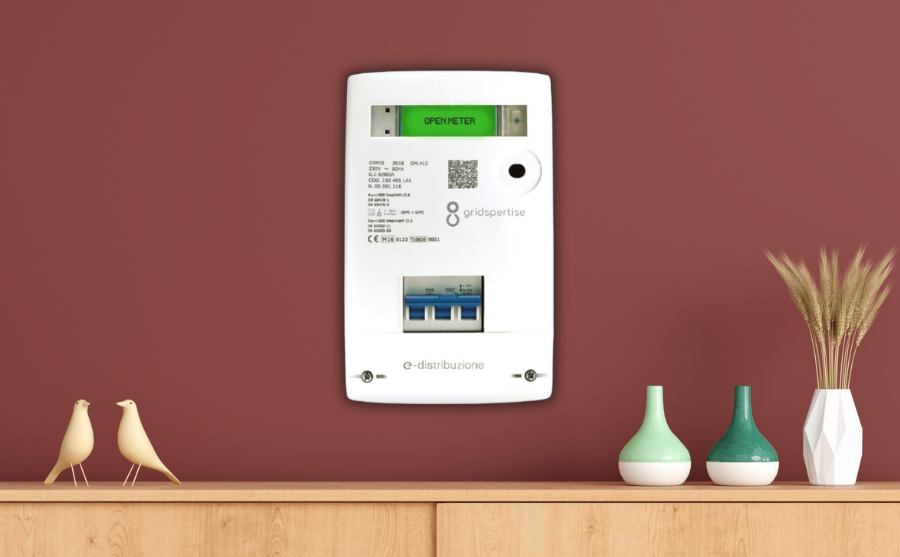

7/29/2024



Distributors of essential services such as water, electricity and gas face a number of challenges that require careful management not only of measurement processes, but also of the support of field operators. What are the main needs for DSOs to optimise field activities?
Among the various dynamics on which distributors must focus and on which, often, they must optimise costs, field activities are at the top of the list and, specifically, efficiency in relation to intervention times is one of the main objectives to be achieved. Every company knows that the management of field teams must be organised in such a way as to minimise intervention times and optimise the use of resources, both for purely business reasons and to comply with obligations imposed by national authorities. In most cases, areas to be improved include:
In addition to these points, there is also the issue of communication:
Finally, in the field, without the right tools for intervention, returning a smart meter or other smart device to its correct operating state may not be straightforward.
Automation and digitisation of processes, in this part of the supply chain, are essential to improve efficiency and reduce error margins. Water, electricity and gas distributors now have the option of relying on advanced tools to boost the quality and time of operations, achieving greater profits in a more sustainable manner, including:
At Terranova, we have always been attentive to every dynamic concerning DSOs, both from an economic and regulatory perspective. Thanks to the digitisation of activities and the use of data that our customers make with our software, the above challenges become surmountable, allowing companies to increase profits and, above all, make their processes much more sustainable.
In addition to reducing the number of field interventions by operators upstream with our Meter Data Management, our software for mobile devices supports operators in the field for operations where they need to be on-site. During installation, for example, it may be necessary to set some specific parameters in the field (such as IP address, destination of communication data, APN configuration, ...). These operations are easily performed with our TAMM mobile app, which supports the operator in configuring a smart meter during installation. Subsequently, once installed and ready to be remote-controlled and telemanaged, the meter may present malfunctions, such as lack of reachability due to poor network or the presence of certain types of alarms that require the active intervention of the operator. In this case, to verify the situation, the operator goes into the field with TAMM Mobile and gets immediate access to all the meter's diagnostic information (alarms, alerts). TAMM Mobile can also act as a bridge between the meter and the Meter Data Management, should the meter fail to communicate data through its own communication system, and can also interact with a receiver and collect data from meters placed in close proximity, via drive-by and walk-by modes.
Investment in digitisation is essential not only for field support, but also, as we mentioned in the first part of this report, to better organise activities, achieving economic and sustainability goals, as well as to maintain competitiveness and keep up with the growing demands of the sector. The Utilities sector requires an increasingly modern and technologically advanced approach to guarantee continuity and quality of service.
In this sense, the adoption of the advanced software solutions offered by Terranova not only ensures operational efficiency, but also the ability to respond quickly to emergencies, while guaranteeing precise and transparent management of field activities.
Terranova's Field Service Management, when assigning tasks to technicians, aims at optimising planning, minimising travel and execution times, thereby increasing business performance and customer satisfaction.
The evolution of the sector, driven by energy transition and technological innovation, has a significant impact on the management of field activities: just think how the digitisation of networks and the introduction of new technologies make energy infrastructures increasingly complex and interconnected. This requires more sophisticated management of field activities. The consequences of inefficient field service management can be significant and range from wasted time of technicians in non-productive activities, increased response times, additional expenses due to non-resolution of problems, deterioration of assets, as well as increased claims.
Terranova's Field Service Management therefore offers a range of tools and technologies to address and solve these problems:
To give an example, the management of Emergency Service files is one of the key cases often considered by companies wanting to improve their Field Service Management. A malfunction in the service, in fact, could cause serious inconvenience to customers and not guarantee continuity of service. This would lead not only to a crack in the relationship with the customer itself, but also to the risk of serious sanctions by the Authority. Adequate computerised tools for recording reports, rapid assignment to field technicians, and real-time monitoring of interventions ensure that any problems are resolved promptly.
During field operations, technicians can, for example, quickly record all interruptions detected. This process makes use of special features that ensure an accurate and immediate census of outages, allowing data to be transmitted to the central system for continuous monitoring and a coordinated response to the need that arises.
The evolution of automated tools also offers increasing autonomy to operators in the field thanks to functionalities that offer the possibility of dealing directly with unforeseen situations, generating new technical files directly in the field. These events can then be recorded and the necessary activities regularly carried out, thus ensuring maximum efficiency in terms of completion and traceability of the operations performed.
To meet the challenges of the industry, therefore, it is crucial that water, electricity and gas utilities equip themselves with advanced technological tools and well-planned strategies that support the activities of field operators. Improving operational efficiency, security, communication and resource management not only increases the quality of service provided to customers, but also contributes to the sustainability and resilience of infrastructure. Digitisation and automation are key elements in addressing these challenges and ensuring that distributors can operate more efficiently and sustainably.

Want to know more?
We’d be happy to talk more in detail about your needs and explore how we can become your ideal partner, to assist you in your business venture of innovation, digitization and sustainability